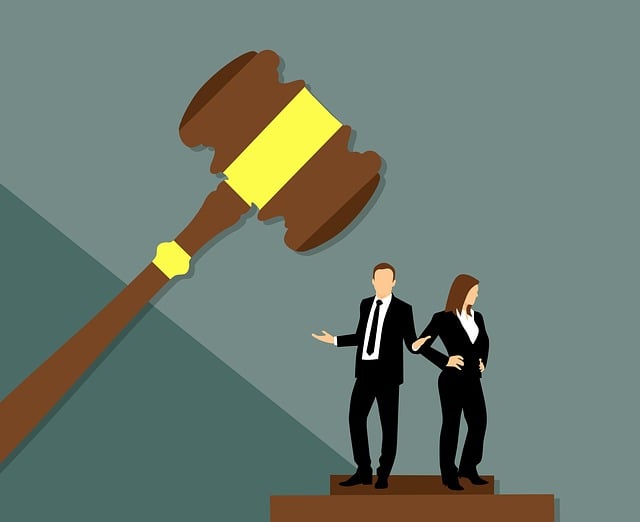Court cases focusing on Property Ownership Issues within environmental crimes are crucial for balancing ecological preservation and property rights. These trials, involving disputes over contaminated lands and resources, require meticulous legal expertise to resolve fairly. Landmark cases like United States v. Standard Oil Co. and Citizens v. Environmental Protection Agency have shaped environmental law, fostering a balance between property entitlements and public protection. Such trials set precedents for conservation, influence urban planning, and hold offenders accountable, encouraging sustainable practices. Future trends include cross-border cases, advanced technology use, and increased focus on green initiatives, demanding adapted legal strategies and global cooperation to address complex environmental crimes effectively.
“Environmental Crime Trials: Uncovering Legal Battles for a Sustainable Future explores the intricate world of environmental law through a lens of property rights. This comprehensive piece delves into how legal disputes, centered around court cases involving property ownership issues, have shaped environmental regulations. From landmark decisions to ongoing challenges, we analyze the impact on communities and land use, while predicting future trends. Understanding these trials is crucial for navigating complex environmental crimes and fostering sustainable practices.”
- Understanding Environmental Crime Trials: A Legal Perspective
- Property Ownership Disputes: A Common Theme in Environmental Cases
- Key Court Cases Shaping Environmental Law and Property Rights
- The Impact of Environmental Crime Trials on Community and Land Use
- Future Trends and Challenges in Adjudicating Environmental Crimes
Understanding Environmental Crime Trials: A Legal Perspective

Environmental Crime Trials, a burgeoning legal field, delve into complex issues surrounding environmental degradation and its impact on society. These trials often revolve around understanding the legal dimensions of property ownership and its relationship to ecological preservation. When businesses or individuals are accused of harming the environment through activities like pollution, deforestation, or illegal waste disposal, court cases involving property ownership issues become pivotal.
From a legal perspective, these trials scrutinize not only the actions of perpetrators but also their rights over the land. The defense often argues that property owners have certain entitlements, while prosecutors seek to balance these with the public interest in environmental protection. This dynamic plays out against the backdrop of white-collar and economic crimes, where the accused may seek to justify their actions for financial gain or even political influence. Philanthropic and political communities also find themselves engaged, as environmental crime trials can have far-reaching implications for sustainable development and accountability.
Property Ownership Disputes: A Common Theme in Environmental Cases

In many environmental crime trials, property ownership disputes play a pivotal role. These cases often revolve around contested lands or resources that have been allegedly harmed by illegal activities. Court cases involving property ownership issues are complex, as they require careful navigation through layers of legal and regulatory frameworks. The challenge lies in proving the true owners’ rights while uncovering any deceptive practices or fraudulent claims related to land ownership, especially when environmental crimes are involved.
White-collar defense strategies frequently intersect with these disputes. Accused individuals or corporations may employ various tactics to protect their assets and interests throughout all stages of the investigative and enforcement process. This includes challenging evidence, questioning jurisdiction, and negotiating settlements to mitigate potential liabilities. As such, property ownership becomes a critical aspect in environmental cases, demanding meticulous legal expertise to resolve conflicts fairly and ensure justice for all parties involved.
Key Court Cases Shaping Environmental Law and Property Rights

The evolution of environmental law has been significantly influenced by landmark court cases involving property ownership issues. One notable example is United States v. Standard Oil Co. (1976), where the Supreme Court ruled on the prosecution of corporate entities for environmental crimes, setting a precedent for holding businesses accountable under the Clean Water Act. This case sent a powerful message to industries across the country, underscoring the importance of adhering to environmental regulations and potentially avoiding indictment.
Another significant trial was Citizens v. Environmental Protection Agency (1972), which challenged the government’s authority to regulate air pollution. The court’s decision strengthened the EPA’s power to enforce environmental standards, impacting property rights by ensuring that industries could not operate without considering their impact on the surrounding environment. These court cases have shaped the legal framework for addressing environmental crimes, fostering a balance between property ownership and the public’s right to a clean and safe environment, and engaging both the philanthropic and political communities in environmental stewardship.
The Impact of Environmental Crime Trials on Community and Land Use

Environmental crime trials have far-reaching implications for communities and land use. When courts handle cases involving property ownership issues, they set precedents that shape future decisions on environmental conservation and remediation. These trials not only address immediate harm but also send powerful messages to industry leaders and developers about accountability and sustainable practices. By examining the root causes of environmental degradation, judicial outcomes can influence urban planning, infrastructure development, and land stewardship.
Successful environmental crime cases often result in restitution for affected communities, including financial compensation for property damage or loss of use. This process empowers residents and fosters trust between citizens and authorities. Furthermore, an unprecedented track record of convictions sends a clear signal that corporate and individual clients engaging in harmful practices will be held accountable, ultimately encouraging the adoption of more responsible land-use strategies.
Future Trends and Challenges in Adjudicating Environmental Crimes

As environmental crimes become increasingly complex due to globalization and technological advancements, future trends in adjudicating these cases present both challenges and opportunities. One prominent trend is the rise of cross-border cases, where pollution or ecological damage transcends national boundaries. This requires international cooperation and specialized courts to handle disputes involving foreign jurisdictions and diverse legal frameworks. Additionally, the integration of advanced technologies like AI and blockchain will play a significant role in evidence collection and preservation, enhancing efficiency but also raising concerns about data privacy and security.
Moreover, with a growing focus on sustainability, future court cases involving property ownership issues may heavily hinge on environmental impact assessments and green initiatives. Corporate and individual clients alike will need to navigate these evolving legal landscapes, demanding a robust general criminal defense strategy that encompasses both traditional and emerging issues. Achieving extraordinary results in these complex cases will necessitate lawyers staying abreast of legislative changes, scientific advancements, and global environmental movements.
Environmental crime trials play a pivotal role in shaping legal landscapes, addressing property ownership disputes, and resolving key court cases that define environmental law. As these trials continue to evolve, understanding their impact on communities and land use is essential. By examining past and present trends, we can anticipate future challenges and the need for innovative solutions to adjudicate environmental crimes effectively. This includes recognizing the intricate interplay between environmental protection and property rights, as highlighted by numerous court cases involving property ownership issues. Ultimately, these trials are not just legal battles but crucial steps towards a sustainable and equitable future.






